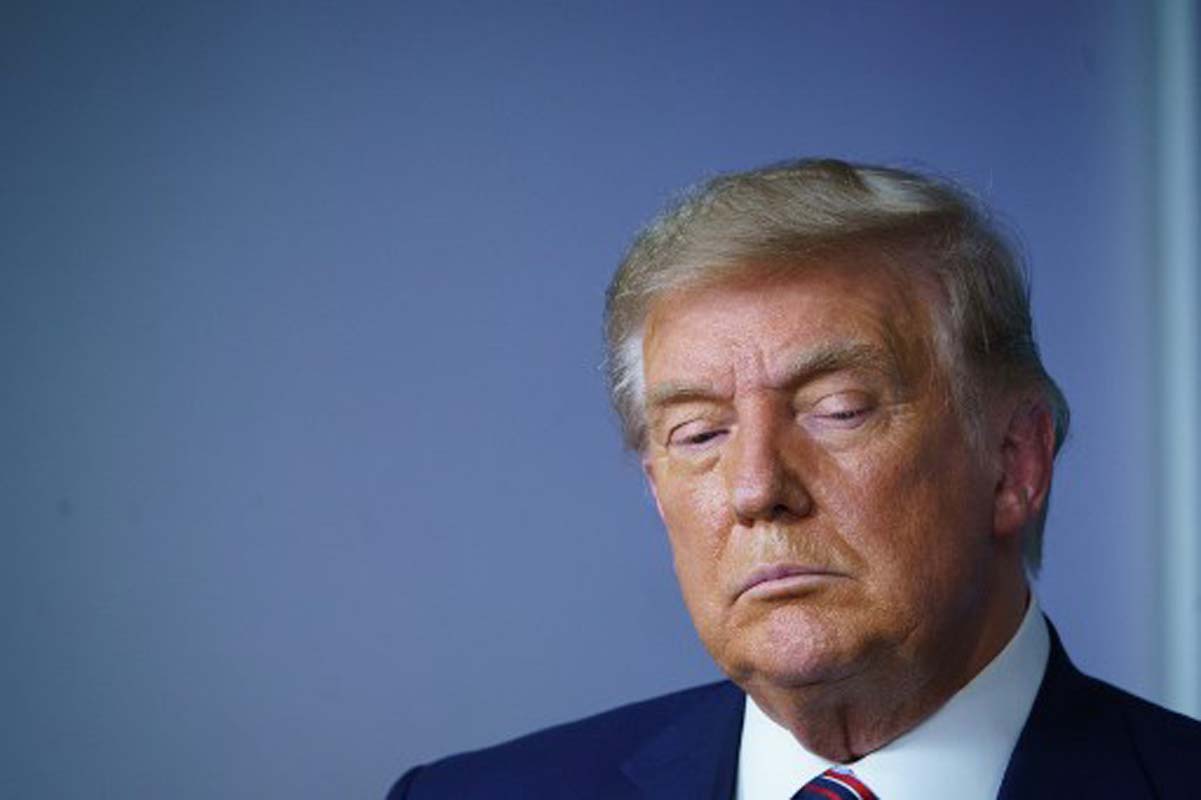
403
Sorry!!
Error! We're sorry, but the page you were looking for doesn't exist.
Trump, Netanyahu Disagree Over Middle East Strategy
(MENAFN) Tensions are escalating between U.S. Leader Donald Trump and Israeli Premier Benjamin Netanyahu, as the two diverge on pivotal Middle East matters.
Their strained relationship is becoming increasingly apparent ahead of Trump’s upcoming tour of the region—a visit that notably omits a stop in Israel.
This marks a stark shift from their previously close cooperation on regional security.
Where the two leaders were once strongly aligned on handling Iran and the situation in Gaza, they are now deeply divided.
Trump has adopted a more diplomatic stance, promoting negotiations with Tehran and advocating for an end to hostilities in Gaza.
In contrast, Netanyahu maintains a hardline position, continuing to endorse military actions, including potential attacks on Iran’s nuclear facilities.
An article published in an Israeli newspaper revealed that Trump and his advisors have “simply had enough” of Netanyahu’s unwillingness to adapt to Washington’s changing strategy in the region.
This frustration reflects a broader shift in Trump’s foreign policy approach, one that increasingly distances itself from Netanyahu's combative tactics.
Earlier in his presidency, Trump had firmly supported Israeli military operations in Gaza.
He lifted restrictions placed during the Biden administration on arms shipments and officially labeled Yemen’s Houthi movement a terrorist entity.
He also urged that Gaza be “taken over” and transformed into a potential “tourist hub.”
However, in recent times, Trump has altered his course.
He ceased offensive measures against the Houthis and is now promoting direct negotiations with Iran.
This pivot has raised concerns among Israeli officials.
According to a news agency, Israeli leaders are “worried about any deal” that might involve Tehran, fearing it could compromise their national security.
Netanyahu, in particular, was reportedly incensed by Trump’s reluctance to demand a ban on uranium enrichment in a possible nuclear deal.
His staff voiced these objections to Trump’s regional envoy, who subsequently criticized Israel’s renewed military campaign in Gaza and instead urged for a cease-fire and a resolution to the hostage crisis.
Their strained relationship is becoming increasingly apparent ahead of Trump’s upcoming tour of the region—a visit that notably omits a stop in Israel.
This marks a stark shift from their previously close cooperation on regional security.
Where the two leaders were once strongly aligned on handling Iran and the situation in Gaza, they are now deeply divided.
Trump has adopted a more diplomatic stance, promoting negotiations with Tehran and advocating for an end to hostilities in Gaza.
In contrast, Netanyahu maintains a hardline position, continuing to endorse military actions, including potential attacks on Iran’s nuclear facilities.
An article published in an Israeli newspaper revealed that Trump and his advisors have “simply had enough” of Netanyahu’s unwillingness to adapt to Washington’s changing strategy in the region.
This frustration reflects a broader shift in Trump’s foreign policy approach, one that increasingly distances itself from Netanyahu's combative tactics.
Earlier in his presidency, Trump had firmly supported Israeli military operations in Gaza.
He lifted restrictions placed during the Biden administration on arms shipments and officially labeled Yemen’s Houthi movement a terrorist entity.
He also urged that Gaza be “taken over” and transformed into a potential “tourist hub.”
However, in recent times, Trump has altered his course.
He ceased offensive measures against the Houthis and is now promoting direct negotiations with Iran.
This pivot has raised concerns among Israeli officials.
According to a news agency, Israeli leaders are “worried about any deal” that might involve Tehran, fearing it could compromise their national security.
Netanyahu, in particular, was reportedly incensed by Trump’s reluctance to demand a ban on uranium enrichment in a possible nuclear deal.
His staff voiced these objections to Trump’s regional envoy, who subsequently criticized Israel’s renewed military campaign in Gaza and instead urged for a cease-fire and a resolution to the hostage crisis.

Legal Disclaimer:
MENAFN provides the
information “as is” without warranty of any kind. We do not accept
any responsibility or liability for the accuracy, content, images,
videos, licenses, completeness, legality, or reliability of the information
contained in this article. If you have any complaints or copyright
issues related to this article, kindly contact the provider above.


















Comments
No comment